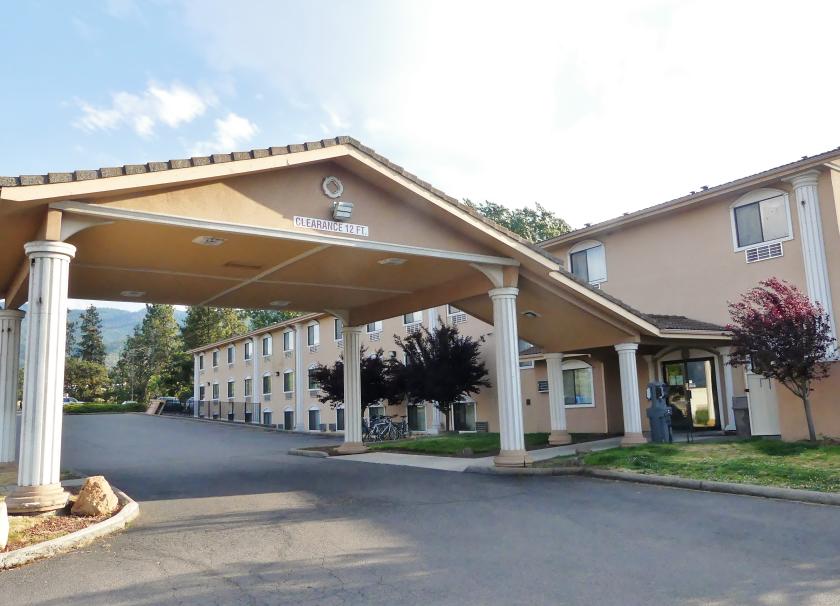
February's Change for Good partner: OHRA

OHRA helps low-income people build better lives through access to social service resources. By helping
people move from crisis to stability, OHRA builds more capable individuals, stronger families, and a
better community. We have three core programs:
OHRA Community Resource Center (OCRC) is the only walk-in resource center serving Jackson
County, offering these basic services:
- Housing Match helps unhoused people find housing and resources to become stable and housing threatened people to stay housed by providing short-term rent or utilities assistance and other resources.
- Job Match gives job search assistance to help people find employment.
- Essential Services are resources that enable guests to overcome barriers to moving forward, including but not limited to assistance to purchase critical items such as a birth certificate or Oregon ID; help applying for benefits and navigating systems including e.g. OHP or Social Security; and, access to internet, telephone and U.S. mail.
.jpg)
The OHRA Emergency Shelter (OES) is a year-round, non-congregate facility providing emergency
housing and meals to vulnerable unhoused people for up to 6-months. During their stay, guests have
access to support navigation services where trauma-informed staff work alongside guests to help them
develop a housing plan, gain employment, or access services to support long-term health and well-being.
The OHRA Laundry and Shower Trailer (OLST) where unhoused people can access basic hygiene
services.
OHRA’s staff of Resource Navigators are the heart of every program offered at the Center, placing the
guest at the center of our service, and working alongside them with a trauma-informed approach. By
building relationships rooted in trust, OHRA Resource Navigators help identify and meet the most
pressing needs of guests. Our goal is to be a “one-stop shop” where a guest can find everything they need to move from crisis to stability.
OHRA stayed open continuously during the pandemic and, after evacuating on September 8, reopened the
next day to serve people devastated by the Almeda Fire. When people have nowhere else to turn to,
OHRA is there as a lifeline for the people in our community who need us most. We certainly focus on our
unhoused guests, but we are also the only resource in town who helps people who are on the verge of
homelessness stay housed and avoid eviction. OHRA has the only walk in resource center in Jackson
County.
We pride ourselves on having a diverse staff, board of directors, and advisory council. At every level of
OHRA leadership people of color, LGBTQ+, indigenous people, and people with lived experience of
poverty and homelessness are represented. We are also proud to be part of a network of community
partners serving our area seeking to improve the lives of those we serve.
Guest Stories with OHRA
Sheila's Story
“If it hadn’t been for OHRA, I would still be living on the street. But because of OHRA, I had a bed, a
room, a foundation,” says Sheila Chaney, a former Shelter guest. That foundation, combined with
Sheila’s own motivation and determination, enabled her to find the tools to build a better life. As a result,
Sheila now has her own permanent home after five years of homelessness.
“When you are on the street you just live minute to minute,” Sheila explains. The Shelter, she says,
changed that. “OHRA gave me a home, so I wasn’t on the street freezing and getting frost bite.” Instead,
she could focus on improving her life.
Chaney, a former OHRA shelter guest, now has her own apartment. She is nearly giddy when she talks
about it and quickly credits the OHRA Shelter, the OHRA resource navigator, her church, Jackson
County Housing Authority, United Way, and St. Vincent de Paul for her new home. But clearly, the
deciding factor in her ability to build a new life was her own determination.
Sheila says her life went off the rails in 2018 due to a domestic tragedy that resulted in her losing custody
of her two youngest children as well as her home. She was living on the street in California when she
first sought help with drug addiction and began her journey to sobriety. Things appeared to be improving
when a childhood friend in Ashland suggested she move in with her. For reasons Sheila does not
understand, her friend assaulted her, and she ended up on the street again.
“I had no family. No friends. No support system.” But despite her situation, Sheila remained determined
to remain drug-free. “I was proud of being in control of my own sobriety.” She was working with On
Track, a Medford-based drug treatment center, to stay clear of drugs, and they told her about OHRA.
She applied and moved into the OHRA Center Shelter.
Once she was in the OHRA shelter, Sheila says, “I hit the ground running. I did not have a car, so I had
to walk everywhere and one day I saw a sign for an apartment for rent.” Sheila applied instantly before
she even had a HUD appointment or voucher because she knew apartments were scarce. She thought her
income would cover the rent. But to be sure, she also applied for an Emergency Housing Voucher, which
she eventually received.
Every day she called the rental agent and owner about the apartment. When the first person in line failed
to claim the apartment, Sheila moved to the front of the line. But the rental deposit presented a huge
obstacle. Sheila contacted her church about potential resources and to her delight they gave her enough to
cover the deposit and some rent.
Sheila glows when she talks about her new home.
“I have a new life now. I have a beautiful home,” she says gleefully. “OHRA gave me hope. My church
gave me faith. It’s incredible.”
“My Coach, My Teammate, My Umpire”
OHRA meticulously tracks and counts the services it provides. But sometimes it is hard to quantify what
may be the most vital service – being a companion on a guest’s road to recovery.
Susan (not her real name) is a guest whose story and note of appreciation to OHRA stressed the value of
having someone to lean on when you hit a rough patch.
Susan originally came to OHRA nearly two years ago. She had been working with an OHRA partner, St.
Vincent de Paul, on the problem of stable housing, but then Susan’s car broke down and she lost both
transportation and a potential (although not ideal) shelter. Lead Navigator Tina Stevens worked with
Susan and, with other OHRA partners, raised money for car repairs. However, that did not end the
problem of her unsafe housing (coach surfing and even sheltering in a former shop). Eventually, Susan
moved into the OHRA Center as a stop gap. Tina worked with her to get a HUD and then the housing
authority found a landlord who would take the voucher. Here is part of Susan’s note to OHRA, United
Way and St. Vincent de Paul.
“This has been a very long journey. But I wasn’t alone on my path. I had you, Tina. You had my back
through every single step. I don’t know what I would have done without you rooting me on, being my
coach, my teammate and my umpire.”
Susan talked about moving out of her OHRA Center room for its next guest. “This was a wonderful place
to be. You are all amazing people.”
A Couple's Story: Rapid Rehousing Stops Crisis from Snowballing
John and Judy's situation was bleak-- they were living in a motel for two months after losing their jobs
and home. Room costs were eating up their savings. John’s chronic disability made sleeping in the car
impossible. OHRA’s navigator quickly recognized the couple qualified for COVID Rapid Relief
Rehousing funds. OHRA’s navigator found them an apartment just nine days after meeting them.
When OHRA’s navigator told them “I can get you housed right now,” Judy fell to her knees and cried.
Since then, John has secured disability benefits. Judy continues to look for work, but in her words “a
world of worry has been lifted.”
A Family's Story: Hope When Everything Was Lost
A family of agricultural workers came into the Resource Center because COVID had taken their jobs, and
the Almeda fire had taken their home. OHRA’s navigator immediately contacted a community partner
that found a rental for the family. OHRA connected the family with resources for a deposit and several
months’ rent. In a follow-up visit OHRA was also able to secure utility assistance while they got on their
feet.
The parents are now employed and deeply grateful for the help during an unthinkable crisis. With his
parents stable, the oldest son was able to stay in school and graduate from college.
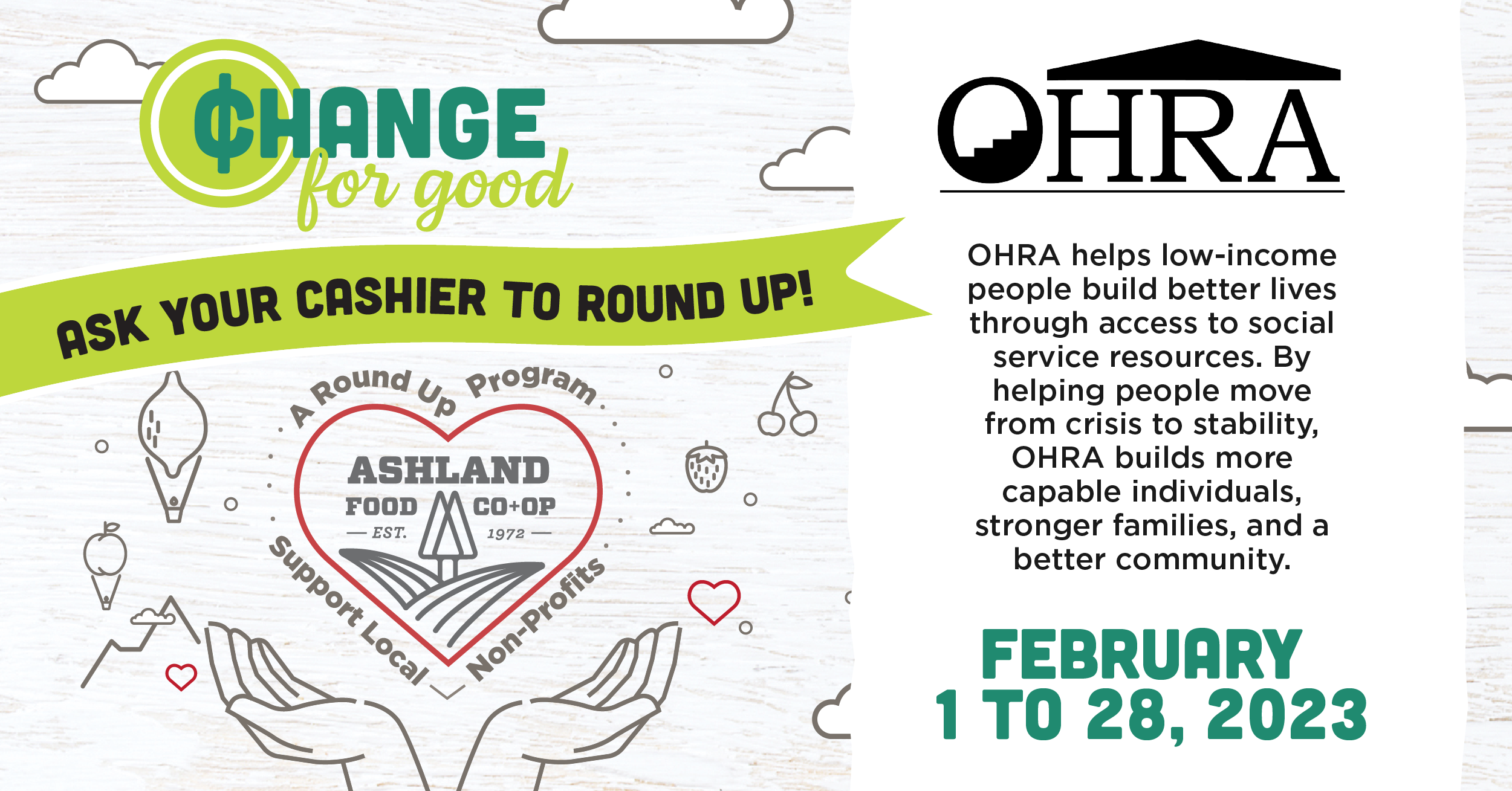
More Co-op News
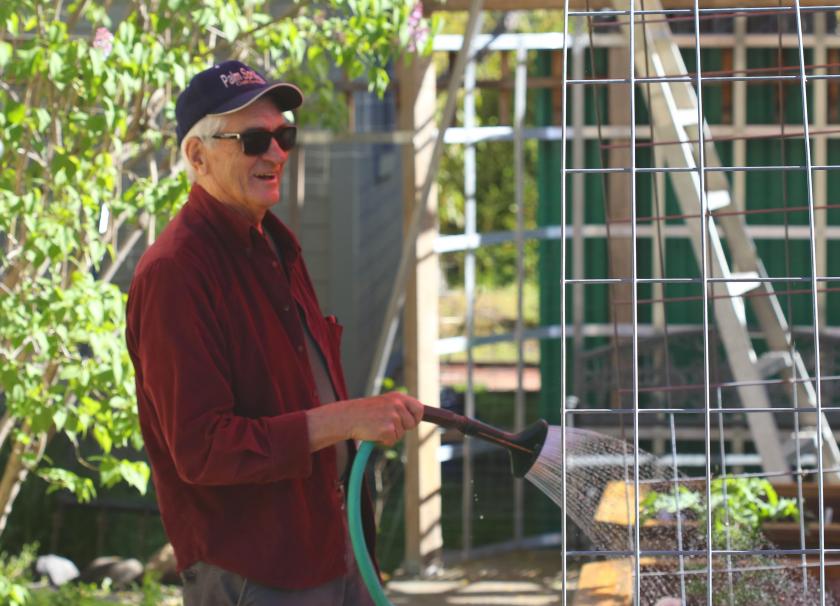
The Co-op's "Secret Garden"
Did you know the Co-op employees have a small garden on our campus? Planning and management falls on our fantastic Co-op volunteer: Henry Herting.
Below, Henry shares some background on the garden, what it’s used for, and some additional tales from over the years.
Originally, the need for a kitchen garden arose from having a kitchen classroom in which culinary classes were being held. Visiting chefs have always been invited to use the garden for any ingredients they may have forgotten or items they could use as garnish for their dishes.
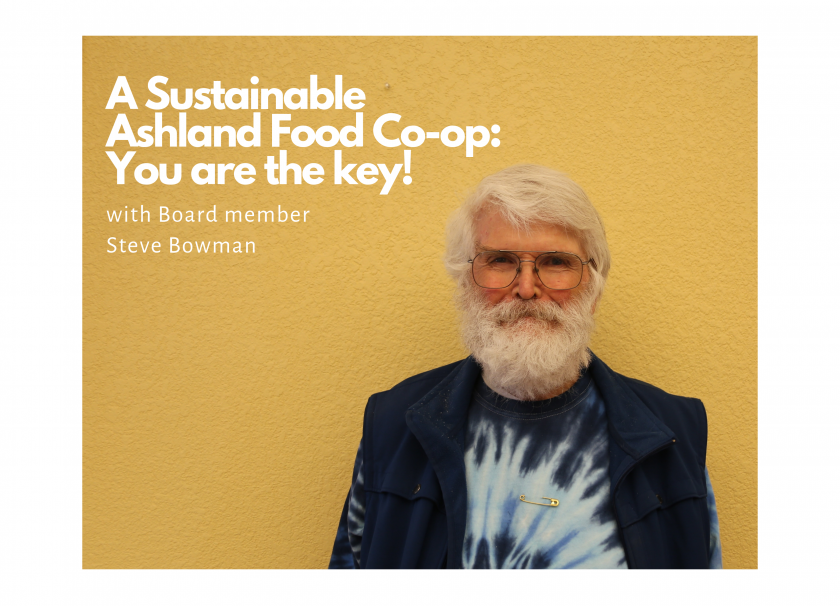
Sustainable Ashland Food Co-op: You are the key!
By Steve Bowman, AFC Board Director
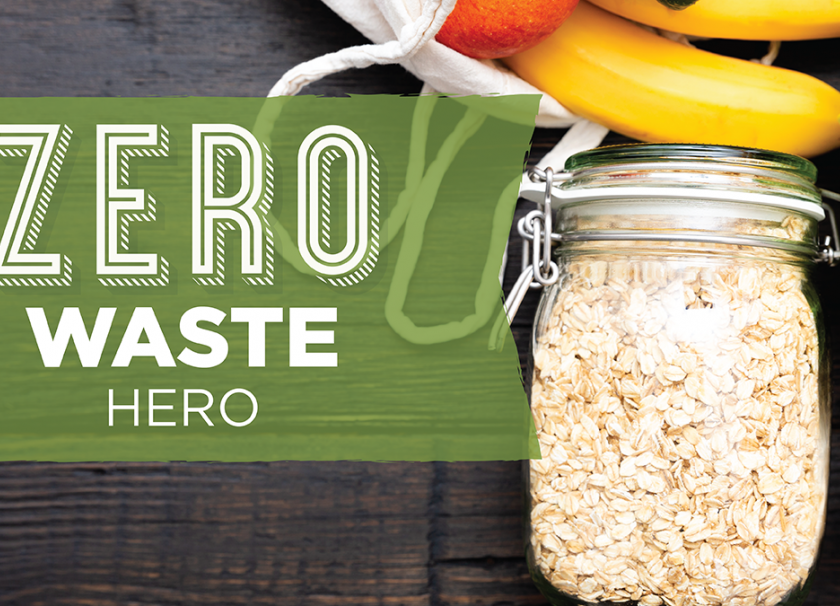
Tips for a Sustainable Kitchen
By Mahlea Rasmussen, Education Coordinator
Outside of work I spend a lot of time in the kitchen. I find it a soothing space to create nourishing meals and lasting memories. I find it essential to be as eco-friendly as possible and a few changes can transform your kitchen into a sustainable center of your home.

Earth Day Bulk Sale! April 17-21
Save money while working towards a more sustainable shopping experience! The Co-op bulk department is a great "first stop" for your grocery lists - everything from hummus mix to local honey to pet food is available. Plus there's less waste, all the way from shipping to ended up in your shopping cart.
Check out a quick tour below:

Film festival giveaway
Enter your name and email below to be entered to win two film vouchers for the 2019 Ashland Independent Film Festival.
No purchase necessary. Giveaway is not endorsed or sponsored by AIFF. US residents only. Entry will be closed at 5pm PT on Monday, April 15.

The state of plastics
Many Co-op owners and shoppers have shared their interest in reducing plastic usage in the store. From bioplastics, to compostable plastics to recycling options, the Ashland Food Co-op continues to research what works best as we move towards our goal of being a zero waste store. Here is where we stand.
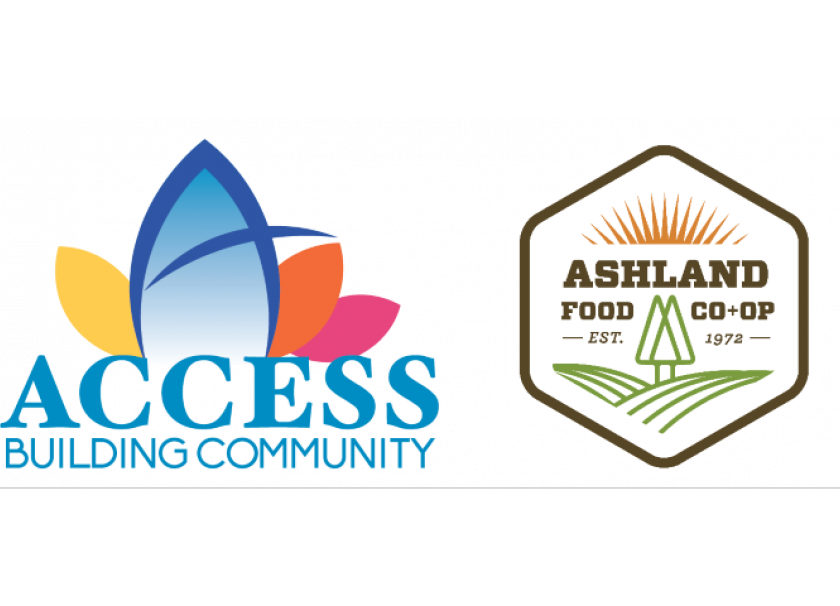
Ashland Food Co-op Celebrates 20-year Partnership with ACCESS
We are proud of a partnership with ACCESS that has benefited the community immensely over the past twenty years. Read on for more about the partnership, or watch the short video below.

Food waste at the Co-op
By Rianna Koppel, Sustainability Coordinator
How many times in the past month have you reached back in the fridge to snack on some fresh strawberries only to discover… mold?! In the United States, 40% of food is wasted every year. Luckily, how we address food waste can have a major impact. According to Paul Hawkin’s Drawdown, reducing food waste is #3 on the list of best ways to reduce carbon dioxide emissions. At the Co-op, we use the EPA’s Food Recovery Hierarchy as a guide to bettering our own practices.
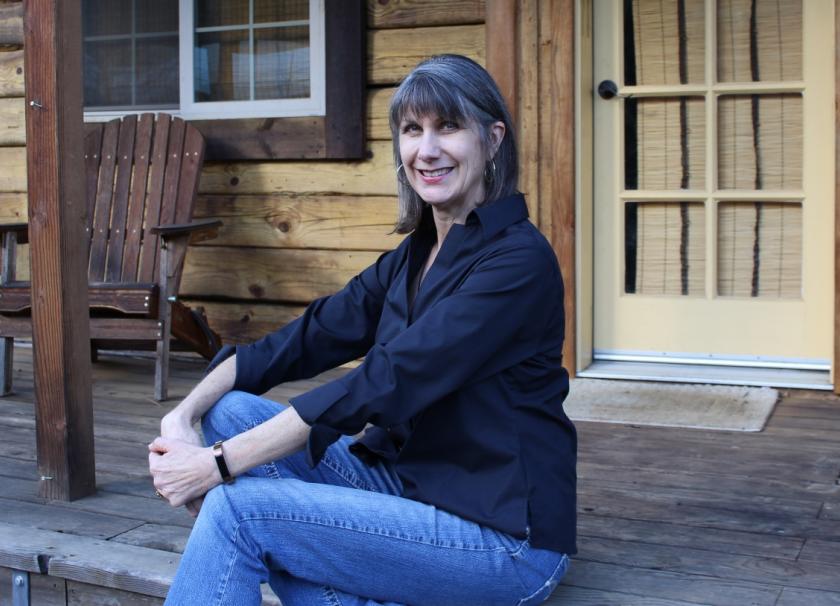
Meet Cooking Class Instructor, Gianaclis Caldwell
Get to know Gianaclis Caldwell ahead of her class, "Easy Mozzarella and Burratta - From Scratch!" on March 7. Gianaclis is the author of the award-winning book Mastering Artisan Cheesemaking and owner of Pholia Farm.
Tell us how your love of cooking (or cheese) and food began.

Wellness Secret Weapons
There are still plenty of colds and viruses making their rounds, and we want to help you better defend against them!
In January, we asked on social media what kind of secret weapons you use in the winter to stay healthy. We had a lot of responses, so we'll start with the All-Stars.
With your initial recommendations, our Wellness team reviewed the suggestions and picked the products with the highest quality standards and best feedback. Check those out below.

Mushrooms for wellness
You may have heard about the fascinating discovery that trees can communicate with each other. What’s the secret? The mycelia - tiny strands of fungus - in the soil form a vast underground network through which trees send chemical signals to their neighbors.
The mycelia differs from the fruiting body of the mushroom, which is the reproductive component that contains spores and is thought to be higher in Beta Glucans.
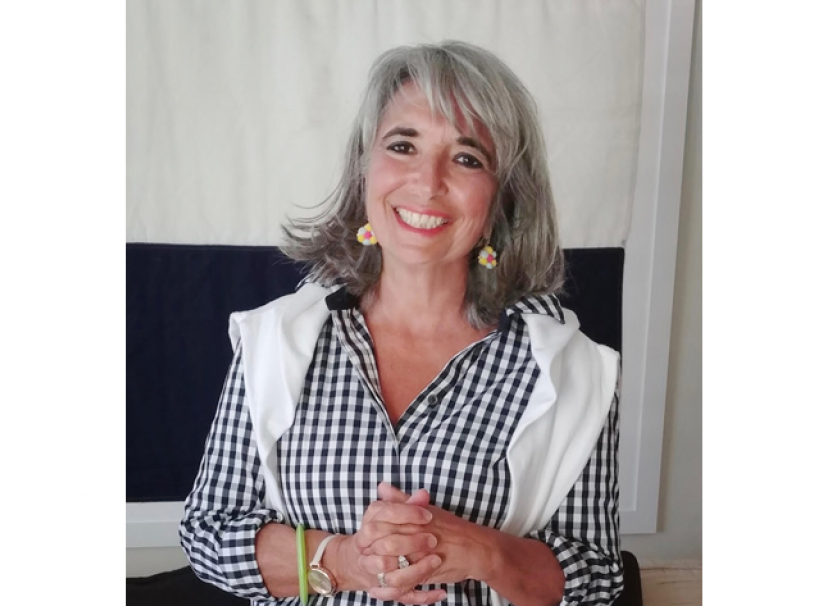
Meet class instructor, Joette Calabrese
This class instructor profile is connected to the February 27 free lecture, "You, Too, Can Beat the Flu!"
On an early Kolkata (Calcutta) morning, thick crowds gather outside the gates of the hospital while officials yell out "Brain tumor, kidney failure, cancer patients form a line here!” Hopeful patients, family members and caregivers arrange themselves by disease symptom.
What to do with all this citrus?!
So you grabbed a few too many extra oranges and grapefruits and lemons (and some finger limes, and some satsumas…), and rather than watch them go bad, we want to provide you with some ideas on how to reduce waste. You’ll also get to enjoy citrus in a lot of new ways!
There are many guides and recipes across the internet (like this one by our friends at Grow Forage Cook Ferment), so here are a few ideas to get your creative and citrus juices flowing.

Update from the General Manager: "Food for Paradise" campaign
Ashland Food Co-op's General Manager, Emile Amarotico, ends 2018 on a very uplifting note with a report back on the "Food for Paradise" donation campaign. Watch the video below, or read on for an extended written update.
Hello, this is Emile Amarotico, the general manager of Ashland Food Co-op with an update on the Co-op’s Food for Paradise initiative.
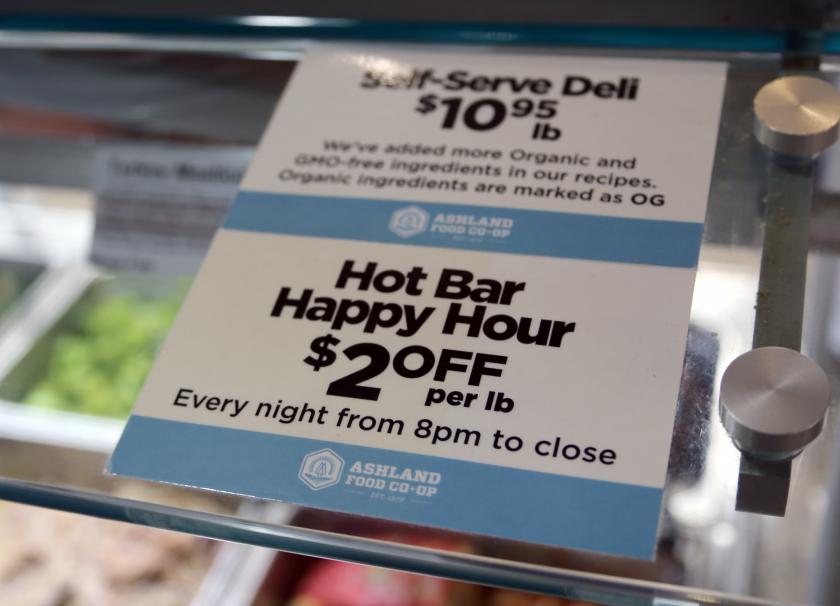
5 Fresh Ways to Save at the Co-op
We’ve all been there: your bank account is looking thin after a month of celebrations, but you’ve made a New Year’s resolution to save up for a big purchase later in the year
Now’s the time to make some changes to your spending - but that doesn’t mean you have to skimp on quality goods at the Ashland Food Co-op.
These are some lesser known ways to save at the Co-op. Think of them like ordering off the secret menu.
Savings Level: $
